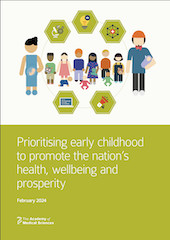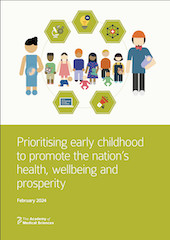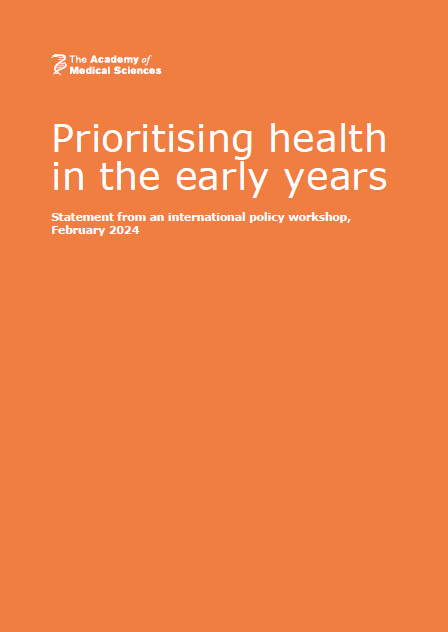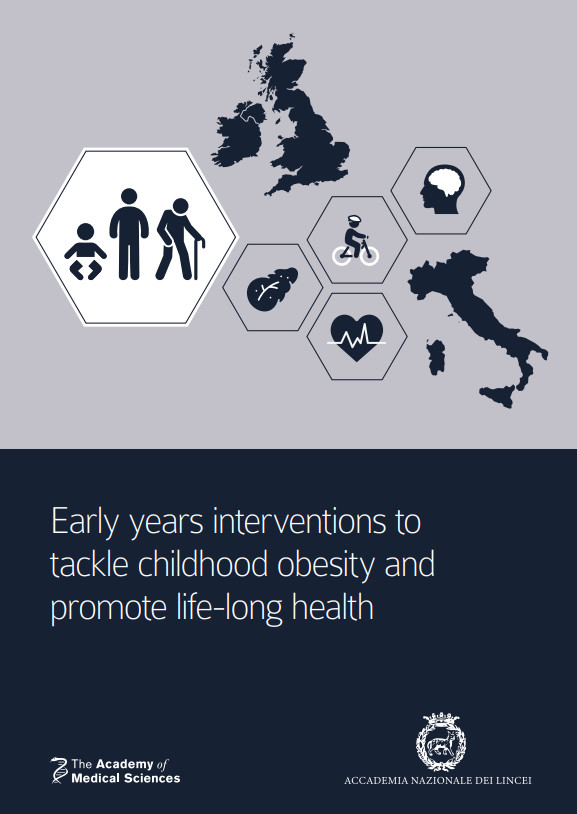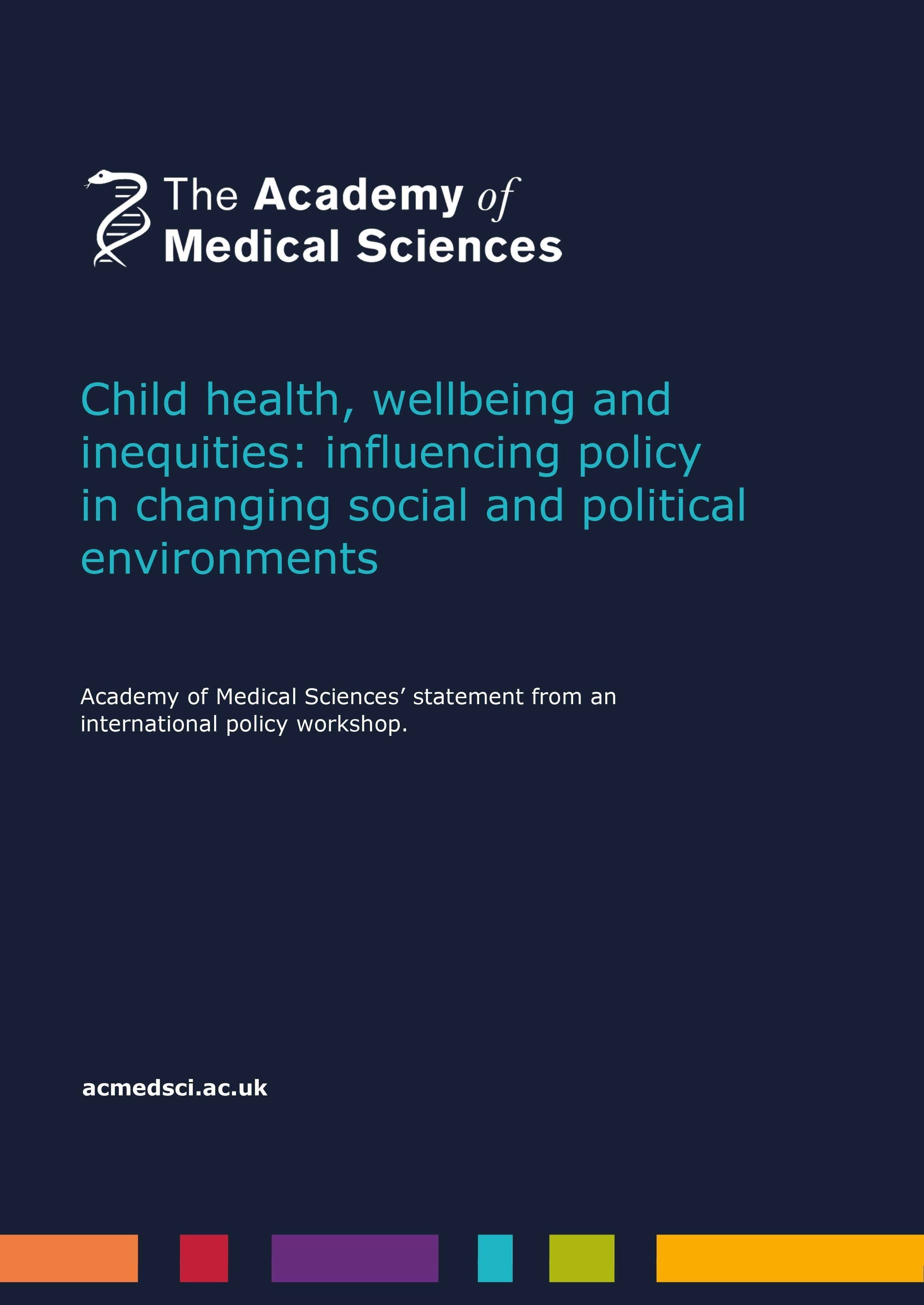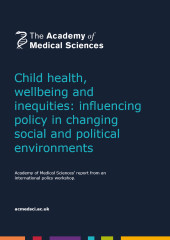In the UK, our health is getting worse and there is a growing gap between the health and wellbeing of the richest and poorest people.
Health in the early years of childhood lays the foundations for mental and physical health throughout life. Healthy children are more likely to grow into healthy, productive adults. In recent years, the infant survival rate in the UK has stalled and is worse than in 60% of similar countries. We are seeing higher demand for children’s mental health services, an increase in the number of children who have obesity and a decrease in children having vaccinations, and tooth decay remains the leading cause of children’s hospital admissions. The rate of breastfeeding, which brings multiple health benefits for children and their mothers, is low in the UK compared with similar countries. Issues such as the COVID-19 pandemic, the increase in the cost of living and climate change are likely to make early years health in the UK even worse. Despite different international contexts, similar trends are seen globally.
Recognising this, the Academy of Medical Sciences published a major UK policy report examining the impact of intervening in the early years (from preconception up to age five) on the health and prosperity of the nation in February 2024. Following this landmark report, the Academy convened multiple international policy workshops to convene stakeholders from other countries to assess if the trends were similar, and how to overcome them.
The Academy’s UK report examines the impact of intervening in the early years (from preconception up to age five) on the health and prosperity of the nation, co-chaired by Professor Helen Minnis FMedSci and Professor Sir Andrew Pollard FMedSci. It involved researchers, charities, policymakers, health and care professionals, parents and carers to bring together the evidence of the impact of the early years on long-term mental and physical health and highlight examples of effective, evidence-based interventions that can be made to improve child and lifelong health. Alongside the main report, the Academy also commissioned a targeted literature review to look at the economic impact of interventions that aim to improve child mental and physical health, in pregnancy or up to age 5.


The UK report found that child health in the UK is deteriorating. In recent years, the infant survival rate in the UK has stalled and is worse than in 60% of similar countries. There is higher demand for children’s mental health services, an increase in the number of children who have obesity and a decrease in children having vaccinations, and tooth decay remains the leading cause of children’s hospital admissions.

UK report recommendations
Every child has the right to a safe and healthy childhood. Health and wellbeing in the early years of life lay a solid foundation for adulthood, bringing health and economic benefits to the whole of society. Current and future UK Governments must prioritise improving health and wellbeing and reducing inequalities in the first five years of life.
To do so, the Academy recommends that the following five priorities are urgently addressed:
- Implementing effective interventions to improve child health and wellbeing and promoting research to identify further approaches.
- Establishing a unifying vision across Government for the early years to overcome policy silos.
- Addressing the decline in the child and family health workforce and fragmentation across sectors to deliver effective services for children.
- Collecting, improving access to, and linking a broader range of data to facilitate research into interventions and policies that improve child health and wellbeing and their effective implementation.
- Ensuring diverse child, parent and carer perspectives are represented in the development and implementation of new policies and interventions to facilitate their uptake and improve the likelihood of their success.
Supporting materials
For access to the terms of reference, steering group membership, project team, review group membership, details of our evidence gathering approach and public engagement work, please see the report preparation document.
Building from our domestic work, the Academy has also explored child health internationally by convening two multilateral workshops in 2024 and 2025 to examine the trends in the decline of child health in other high-income countries.
Prioritising health in the early years (2024)
Chaired by Professor Rosalind Smyth CBE FMedSci, this workshop convened stakeholders from the UK, Australia, Canada, Japan, New Zealand, Singapore, South Korea, and the US. It resulted in the publication of an influential ‘thrive by five’ statement, where a broad coalition of health organisations and experts called for urgent action to address the worrying decline in children’s health and wellbeing. Key messages included:
- Children and families should be at the heart of developing solutions to better health, education, wellbeing, and equity. These solutions will require a unifying, cross-sectoral vision at local, regional, and national levels using evidence to inform decisions.
- This unifying, cross-sectoral vision will enable governments to address the inequities, often driven by poverty, discrimination, racism, and other social determinants, which are leading to the decline in children’s health and wellbeing.
- Transformational change will be needed over generations to improve child health and wellbeing, so policies and funding must be sustained and co-ordinated to tackle inequities.
- We already have a strong evidence base to support some effective solutions, as highlighted in the Academy’s UK report1 and by participants at the workshop; policymakers should focus on implementing these solutions, working closely with children and families.
- Researchers should work across borders and disciplinary boundaries to investigate the factors affecting the health and wellbeing of young children. This should be supported by effective, co-ordinated longitudinal data platforms (e.g. ECHILD ), to allow for nimble surveillance, evaluation of programmes and policies, and economic assessments to guide resource allocation decisions.
Improving Child Health and Reducing Inequalities in Changing Social and Political Environments (2025)
In 2025, the Academy convened a follow up workshop, with participants from Australia, Canada, Denmark, Japan, New Zealand, Singapore, Sweden, United Kingdom and United States. A statement was published summer 2025 and the report was launched in November 2025.
Early years interventions to tackle child obesity and promote lifelong health (2024)
The Academy and the Accademia Nazionale dei Lincei (Italian National Academy of Sciences) held a joint workshop on childhood obesity and its implications for healthy ageing. Co-chaired by Professor Susan Ozanne FMedSci and Professor Paolo Vineis, participants from the UK and Italy discussed the current state of childhood obesity, particularly in Europe, and the policy initiatives being taken to address it, including comparisons between the UK and Italy.
The workshop discussions also covered the role of science in informing policy and public engagement on childhood obesity and its connections to other key issues, including sustainability.
Key themes from discussions:
- Importance of the first 1000 days of a child’s life
- Cross government coordination - rather than targeting individual behaviours, success will likely require policy interventions across food, education, urban planning and transport
- Tackling health inequalities – obesity rates are twice as high in more deprived areas
- Refine messaging to mobilise support – communication about childhood obesity should not lead to stigmatism
- Strengthen research and researcher-policymaker engagement
- Food policy and legislation – robust regulation of the food industry is needed rather than relying on voluntary agreements
